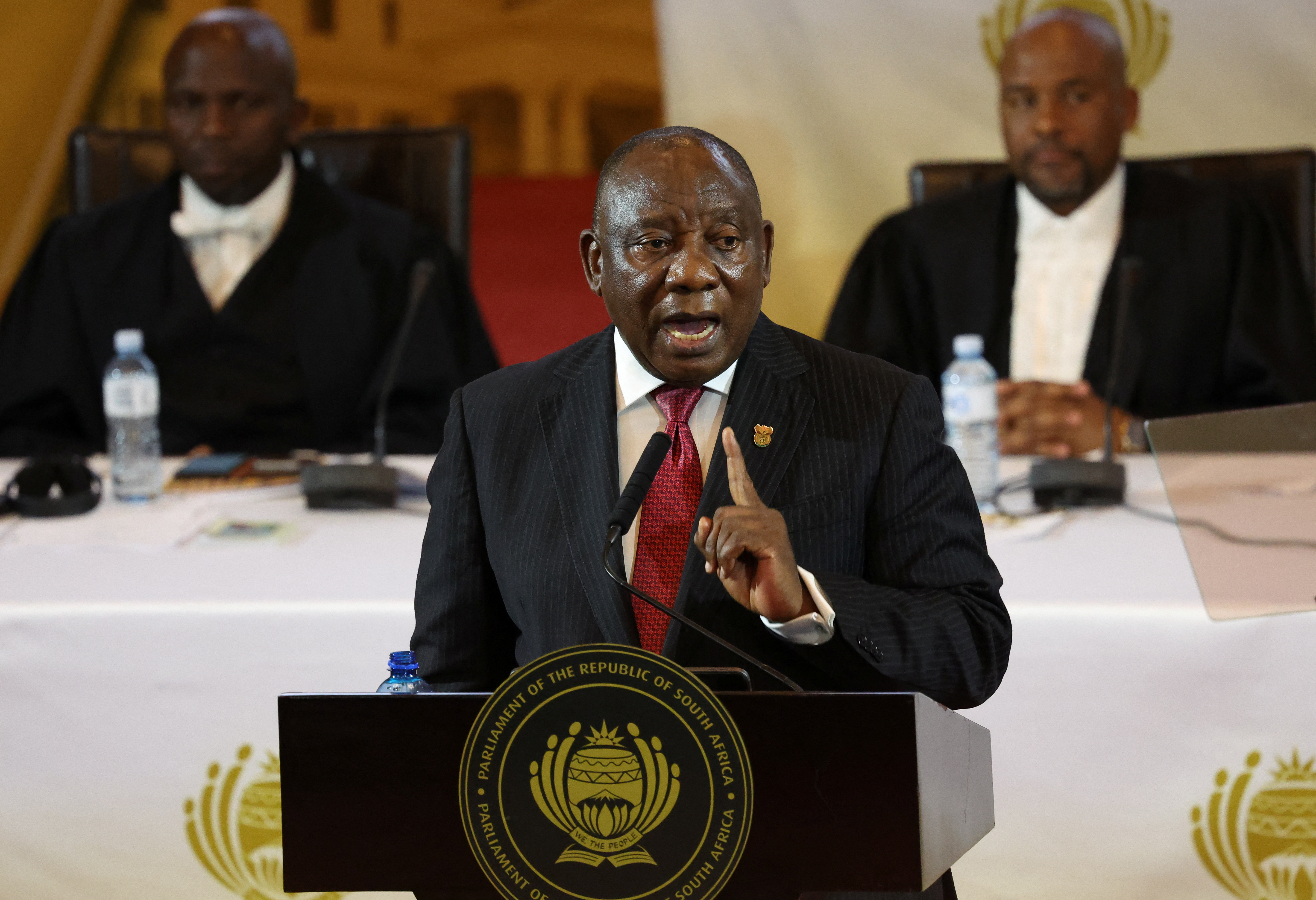International
Ramaphosa's bad legacy at home and abroad

When
he took office in 2018, Cyril Ramaphosa promised to uproot corruption in the
country on the southernmost tip of the African continent. Unfortunately, Ramaphosa’s tenure was marked
with its share of controversies, with corruption on the top.
In
2022, the Phala Phala farmgate scandal was hanging over Ramaphosa who was at
the center of the international scandal involving the theft of $4 million from
his game farm in Limpopo province.
In
June 2022, Arthur Fraser, the former head of the South African State Security
Agency, the country’s spy agency, filed a criminal complaint against Ramaphosa,
accusing him of kidnapping, bribery, money laundering, and “concealing a crime”
in relation to the alleged theft of $4 million from his farm.
According
to Fraser, criminals broke into Ramaphosa’s Phala Phala wildlife farm on
February 9, 2020 and discovered large sums of dollar bills hidden in various
pieces of furniture. Fraser alleged that Ramaphosa’s housekeeper discovered the
stash and messaged her brother, who knew a gang of four Namibian citizens and
two South Africans that could carry out the robbery.
The
housekeeper and the alleged perpetrators were later paid nearly $10,000 for
their silence. The housekeeper was allegedly later reinstated but assigned to a
different job on the farm.
Ramaphosa
denied any wrongdoing, and the so-called Section 89 inquiry into his fitness to
stand office did not lead to his impeachment.
The
Phala Phala farmgate scandal is just a drop in the ocean of Ramaphosa’s
malpractices. It is safe to say that the 71-year-old not only failed to deliver
his promises, but also tarnished the image of the ANC, home and abroad.
The
legacy of his six-year tenure does not match with history of the ANC, known for
its opposition to apartheid and transformation of South Africa’s ways of
politics.
Ramaphosa’s
term saw the country declining in nearly every respect. The economic growth
rate was 1.3 per cent in 2018, but declined to 0.9 per cent in 2023.
The
rand-dollar exchange rate decreased from R11.55 in 2018 to R18.92 in February
2024. The shrinking Johannesburg Stock Exchange (JSE) showed a loss of 22 per
cent against the American dollar over a period of six years.
In six
years, the unemployment rate increasing from 24 per cent to 32 per cent. Youth
unemployment rose with 20 per cent and now stands at 64 per cent.
The
murder rate in South Africa rose from 35 per 100,000 of the population in 2018
to 45 in February 2024.
In
early February, Ramaphosa declared a state of emergency to deal with the
country’s severe electricity crisis including prolonged daily power blackouts. The
declaration came as rolling power cuts of up to eight hours per day hit homes,
factories and businesses across the nation of 60 million.
The
country’s power utility Eskom was unable to produce adequate power due to
frequent breakdowns at its ageing coal-fired power stations and years of
corruption.
Supporting ethnic cleansing in the great
lakes region
Ramaphosa is not only leaving a bad legacy to
South Africans, but also to the people of Africa’s great lakes region. His
decision to deploy thousands of South African Defense Forces in the east of the
Democratic Republic of Congo, to support the Congolese government in
persecuting its own people, the Congolese Tutsi, portrayed him as a supporter
of ethnic cleansing, hence a mass murderer.
What
Ramaphosa’s forces are doing in eastern DRC is worse than what Apartheid did to
South Africans.
The
case of South Africans fighting against apartheid should be a revelation for
Ramaphosa to understand the cause of the M23 rebels who represent a segregated
group, the Kinyarwanda speaking Congolese.
Ramaphosa
is backing Félix Tshisekedi’s genocidal agenda when the latter is killing his
own people.





